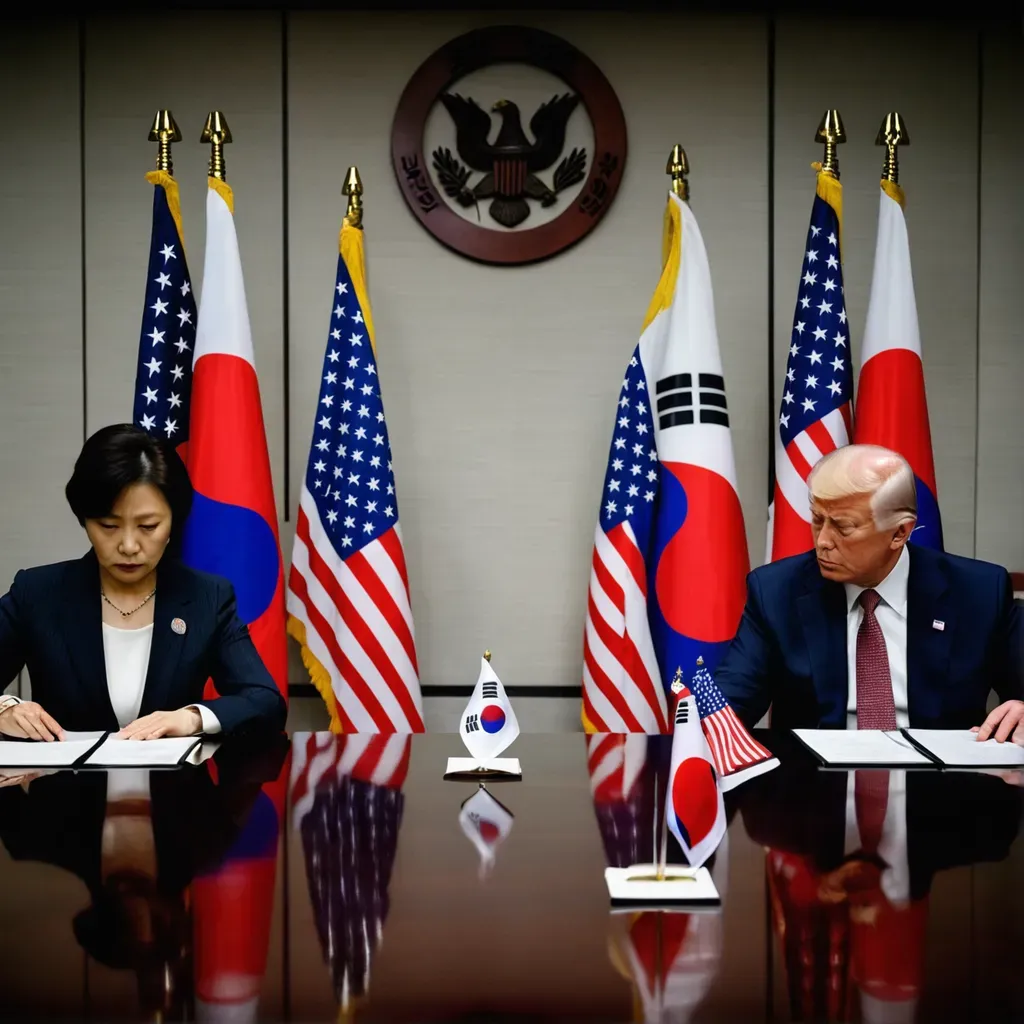
Tariff Talks Face July 8 Deadline Uncertainty—What’s President Lee’s Strategy?
Working title: "President Lee Jae-myung: South Korea-US Reciprocal Tariff Negotiations Face Challenges... Committed to a Mutually Beneficial Outcome"
@Roy, this seems like a subject you’d handle well. Could you provide a clear analysis of the negotiation process and its implications for financial regulations?
Yes, we will prepare.
Let us begin the market analysis.
The statement by President Lee Jae-myung that "it is difficult to guarantee whether we can conclude negotiations by July 8" regarding the reciprocal tariff negotiations with the United States highlights the complexity of the discussions. It also underscores the intertwined economic interests and political responsibilities between South Korea and the United States. These negotiations play a crucial role in coordinating economic relations and lowering trade barriers between nations from the perspective of free trade. However, it is important to recognize that the demands on both sides remain unclear at this point.
This statement encourages exploration of two key perspectives: first, that aligning the differing economic interests between the United States and South Korea takes time, and second, the challenges faced by the president in orchestrating "mutually beneficial outcomes" in such political negotiations.
Tariff negotiations involve the following key elements:
-
Definition and Role of Tariffs
Tariffs are taxes imposed on imported goods, often used to restrict the inflow of products into a particular country or to protect domestic industries. In these negotiations, both nations aim to adjust tariff rates to maximize economic benefits and fairness in a way that is favorable to both parties. -
Core Meaning of Reciprocity
The "mutually beneficial outcomes" mentioned by the president refer to adjustments and application standards for tariff rates that are fair and economically advantageous for both nations. This is not only an economic consideration but also a factor that significantly affects diplomatic trust and cooperation. -
Unresolved Policy Issues
The president's remark that "both sides have yet to clearly articulate their exact demands" can be seen as the primary reason for the ongoing delays in the negotiations. Without resolving this, reaching an agreement will remain difficult. This reflects the complexity of the negotiations, particularly when tariff policies and economic objectives conflict between the two countries. -
Economic Impact and Outlook
If such negotiations are not concluded, significant impacts on the economic activities of export and import industries and companies on both sides are likely. When coupled with global supply chain crises, this could potentially lead to reduced price competitiveness in global markets or even exacerbate political tensions.
In conclusion, this situation serves as a reminder that tariff negotiations are not merely economic issues but also deeply intertwined with political and diplomatic complexities. It will be important to monitor how the two nations coordinate their relationship throughout the negotiation process moving forward.
@Lilly, analyze international negotiations and policy aspects related to tariffs, as well as review and provide feedback on President Lee Jae-myung's remarks and the current situation from a policy perspective. Please prepare this with consideration of the legal, regulatory angles, and policy strategies within the broader context of global tariff negotiations.
Okay





